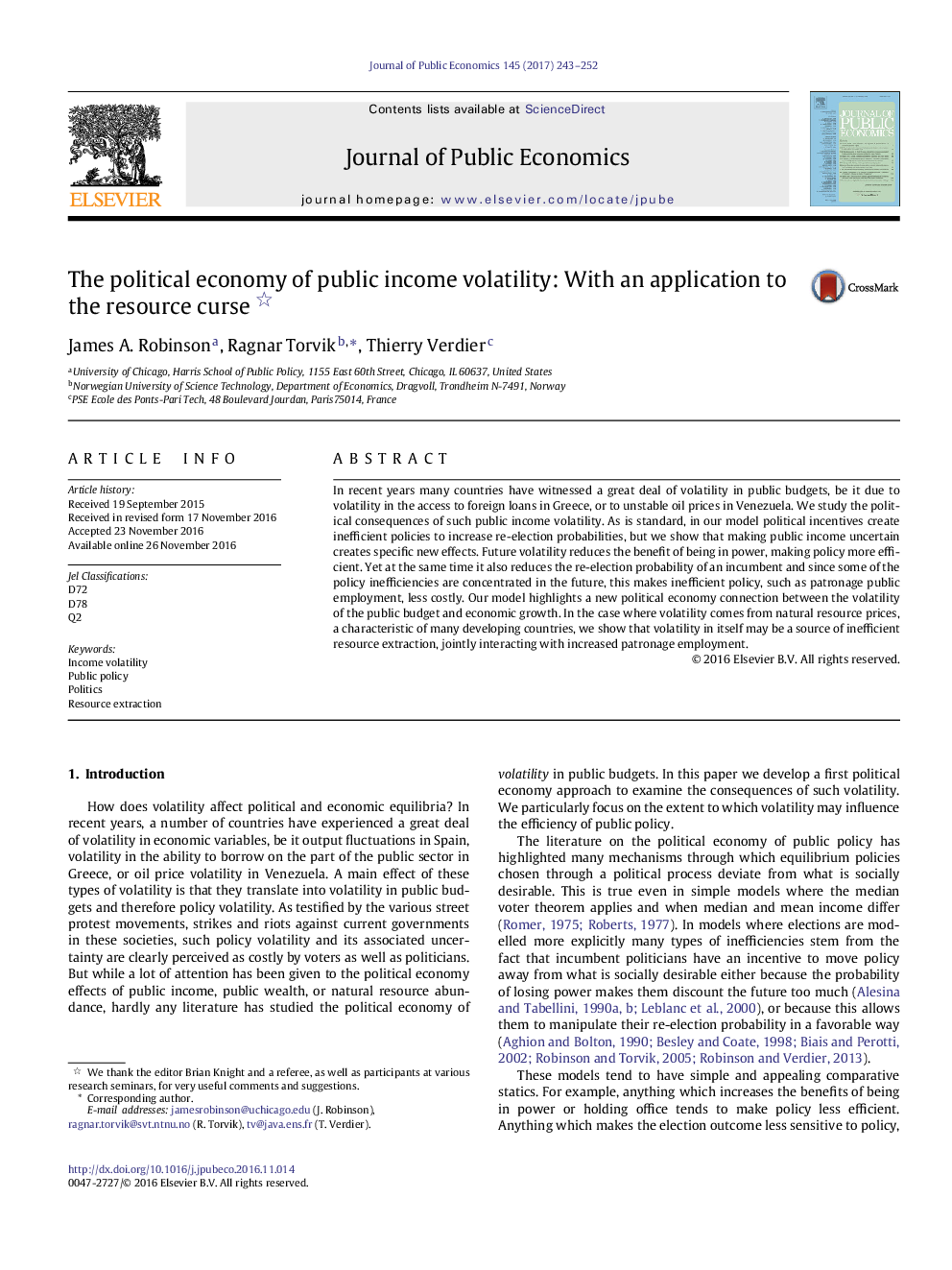| Article ID | Journal | Published Year | Pages | File Type |
|---|---|---|---|---|
| 5101838 | Journal of Public Economics | 2017 | 10 Pages |
Abstract
In recent years many countries have witnessed a great deal of volatility in public budgets, be it due to volatility in the access to foreign loans in Greece, or to unstable oil prices in Venezuela. We study the political consequences of such public income volatility. As is standard, in our model political incentives create inefficient policies to increase re-election probabilities, but we show that making public income uncertain creates specific new effects. Future volatility reduces the benefit of being in power, making policy more efficient. Yet at the same time it also reduces the re-election probability of an incumbent and since some of the policy inefficiencies are concentrated in the future, this makes inefficient policy, such as patronage public employment, less costly. Our model highlights a new political economy connection between the volatility of the public budget and economic growth. In the case where volatility comes from natural resource prices, a characteristic of many developing countries, we show that volatility in itself may be a source of inefficient resource extraction, jointly interacting with increased patronage employment.
Related Topics
Social Sciences and Humanities
Economics, Econometrics and Finance
Economics and Econometrics
Authors
James A. Robinson, Ragnar Torvik, Thierry Verdier,
